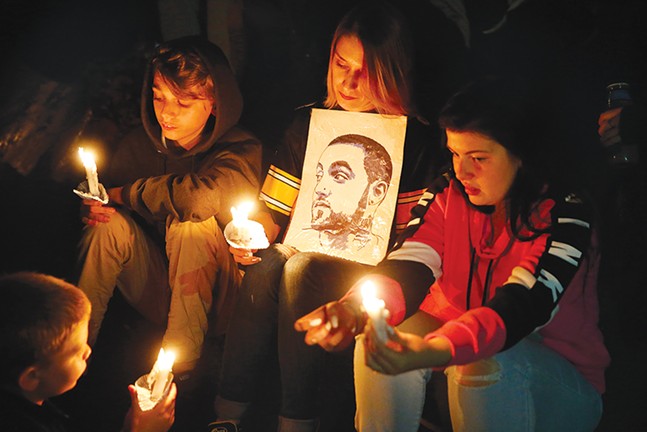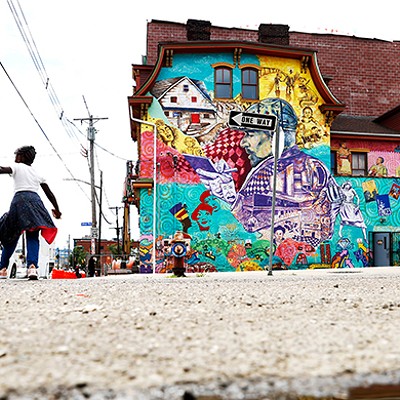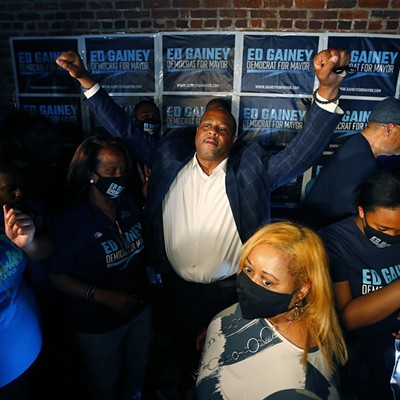
When reports spread on social media that Mac Miller was dead of an apparent overdose, the backlash was almost immediate. Not towards Miller himself, but the reporting around his death.
TMZ was the first to announce Miller’s death and did so with its trademark recklessness. The initial report referenced Miller's past struggles with substance abuse, and included "Miller has had trouble recently with substance abuse ... in the wake of his breakup with Ariana Grande." This seemed to imply Grande was at fault for Miller falling back into drugs, ignoring that his struggles with substances were public since 2012.
At the same time that some fans expressed shock and sadness on Twitter, they also shared anger and frustration about the way TMZ and other outlets blamed Grande for Miller's struggles. The article’s phrasing was later changed to "Miller has battled substance abuse issues for years ... something that came up again in the wake of his breakup with Ariana Grande." Better, but barely.
Separately, but related, there were trending articles with headlines along the lines of "Ariana Grande's Ex Mac Miller Dead," with more fans angry that Miller’s accomplishments had been eclipsed.
And of course, there was the eternal constant in celebrity deaths: articles compiling Tweets from other celebrities reacting to the death. These are always published quickly after a death, and there was no exception with Miller. The Tweets are mostly heartfelt, but they can also feel performative, almost as if celebrities know by tweeting heartfelt condolences they’ll end up in a trending article.
These are all typical pieces of the modern celebrity death reaction cycle. There is often a misstep in the original reporting of the death, backlash to the misstep, and a hefty amount of public grieving. It’s an exhausting rigmarole.
In 2017, CBS reported that Tom Petty had passed away, hours before he was actually pronounced dead. Other musicians started pouring out praises for their fallen idol — even Bob Dylan gave a statement — all while Petty was still technically alive. In the middle of the public’s reminiscence about Petty’s life and career, his daughter had to angrily release a statement that her father was "not dead yet."
Before Aretha Franklin died in August, when it was publicly announced that her health was failing, her family told the press that she was still alert and had watched TV, gently warning not to start airing remembrances yet.
Michael Jackson’s death in 2009 was the first major celebrity passing in a post-Twitter world, and crashed that site along with TMZ, Google, and the Los Angeles Times. The excess of coverage included helicopters flying over Jackson’s estate.
"I think [social media] definitely complicated things more and I think it puts more pressure on news organizations, because if everyone else is saying that someone's died, and you haven't, it looks like there's something wrong with your reporting or your reporting skills," says Andrew Seaman, ethics committee chair of the Society of Professional Journalists.
Once a gossip-website reports anything significant, it can quickly snowball into an outpouring of opinions. This isn't necessarily misguided, since gossip-websites, while not reputable, are often correct.
But the frenzy of social media puts pressure on more reputable publications to verify the information as quickly as possible.
"What happens a lot of times is TMZ will say 'so-and-so died,' and then another organization, they'll tweet out 'oh so-and-so dies,' and they'll say 'according to media reports.' Then, if that news organization is more reputable than, say, TMZ or some celebrity gossip website, another news organization might say 'so and so died, according to NBC News," says Seaman.
There has always been a collective grieving process for the death of beloved celebrities, but Twitter created a sped-up, frenzied way of announcing and reacting to death. Journalism that feeds off and caters to social media is now equally quick to announce a death, provide commentary, or write a eulogy. There is little time to think about what the artist or actor or athlete meant to you personally, before also being faced with everyone else's memories. There is no time to react before there are more updates on exactly how and when the person died.
Then again, maybe it’s not so bad to be so beloved that people are tripping over themselves to say goodbye.
Follow staff writer Hannah Lynn on Twitter @hanfranny.


















